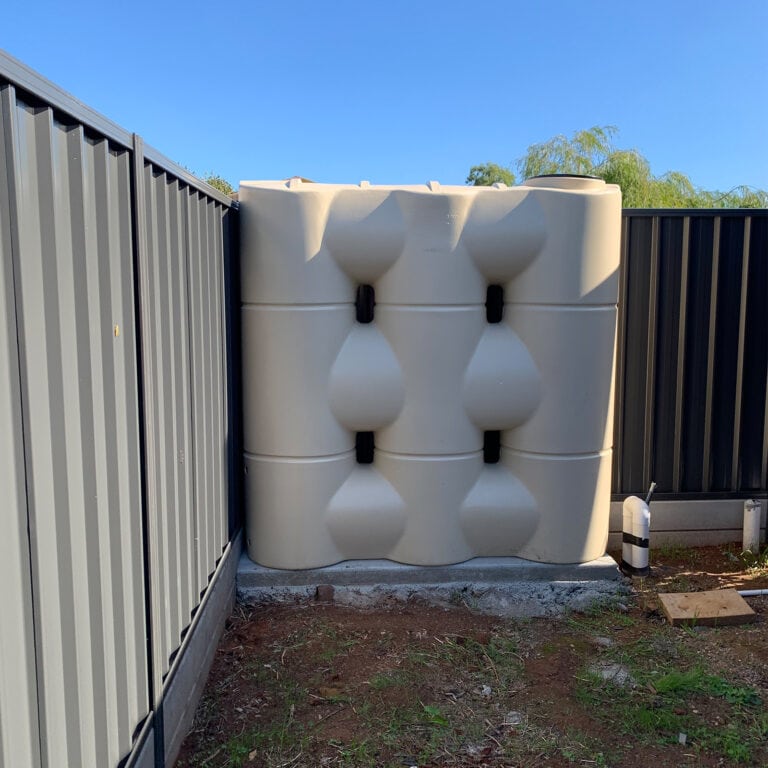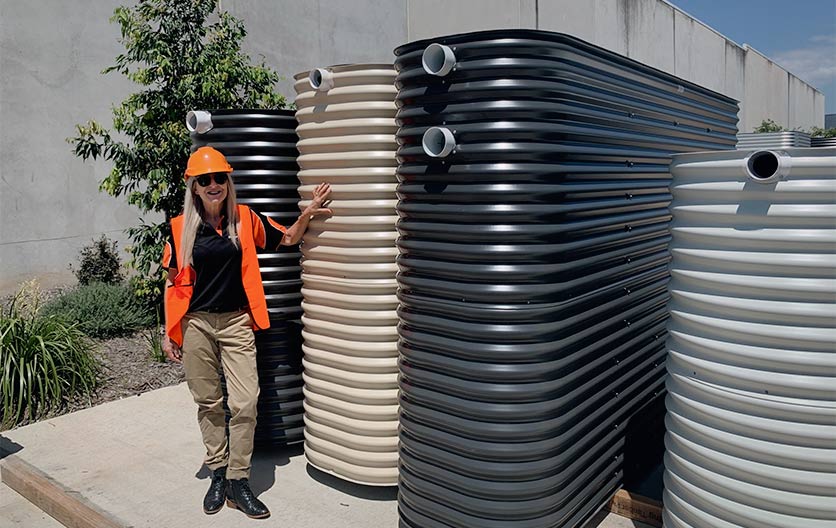Exploring the Numerous Uses Rainwater Tanks for Residential and Commercial Properties
As the international concentrate on sustainable living methods proceeds to escalate, the application of rain storage tanks in both residential and commercial setups has emerged as a relevant remedy. These storage tanks provide a reservoir for rain harvesting, providing a myriad of potential applications that prolong far past simple storage space. From irrigation to toilet flushing and landscape design, the convenience of rainwater containers is vast. Their assimilation into commercial residential properties opens up a world of opportunities for eco conscious businesses. The diverse usages of rain tanks offer an engaging case for their fostering, not just as a sensible water-saving measure but also as a testament to accountable resource administration.
Benefits of Utilizing Rain Containers
Utilizing rainwater containers provides countless advantages for both families and areas in regards to water preservation and sustainability. Among the crucial advantages of utilizing rain tanks is the considerable reduction in dependence on mains water - Slimline water tanks. By catching and saving rain for later usage, people and areas can reduce their demand for treated water, eventually easing the concern on water therapy centers and lowering energy intake related to water transportation and therapy
Furthermore, rain gathering with containers gives a reputable alternate water resource during times of water constraints or shortages. This saved rainwater can be used for numerous non-potable purposes such as watering, purging toilets, and cleaning garments, decreasing the pressure on standard water sources. In addition, utilizing rain tanks can bring about cost financial savings for both families and communities by lowering water expenses and decreasing the requirement for costly framework growths to satisfy growing water needs.
Fundamentally, the usage of rainwater storage tanks supplies a sustainable and eco-friendly approach to water administration, profiting both individual users and the more comprehensive neighborhood in regards to water preservation, cost-efficiency, and strength.
Rain Tank Usage in Irrigation
Given the benefits of rainwater tanks in saving water sources and lowering dependence on mains supply of water, a substantial application hinges on utilizing kept rainwater for irrigation functions - Slimline water tanks. Rainwater gathering systems can successfully accumulate and store rainwater, providing a sustainable water source for watering gardens, yards, and farming areas. By utilizing rainwater for irrigation, property owners can reduce their dependence on treated water sources, resulting in cost savings and ecological advantages

Among the main benefits of making use of rainwater for irrigation is its pureness. Rain is naturally soft and cost-free from the chemicals and additives frequently located in mains water, making it perfect for beneficial plants without the threat of harmful effects. In addition, rain goes to ambient temperature, which can benefit plant development by staying clear of temperature shocks that can happen with cool keys water.
Rainwater Storage Tanks for Commode Flushing

Carrying out rain tanks for toilet flushing is an affordable and ecologically friendly practice that can be easily integrated into both domestic and commercial residential or commercial properties. The saved rain can be utilized to flush bathrooms by connecting the container this content to the existing pipes system. This easy yet effective service can significantly decrease water consumption in a building, particularly in locations where water deficiency is an issue.

Incorporating Rain Containers in Landscape Design
An efficient method for boosting sustainability in landscape design includes integrating rainwater tanks to optimize water usage and promote green methods - Slimline water tanks. Incorporating rainwater containers in landscape design provides many find out here now benefits for both property and business properties. These storage tanks can catch and save rain runoff from roofing systems, which can then be used for watering gardens, lawns, and plants. By making use of rainwater for irrigation objectives, building owners can reduce their dependence on community water resources, causing cost financial savings and conservation of priceless water resources.
In enhancement to supplying a sustainable water source for landscape design requirements, rainwater tanks can additionally help in taking care of stormwater overflow. By catching rainwater that would or else move into tornado drains pipes, these storage tanks can alleviate erosion, decrease flooding dangers, and avoid contamination of all-natural water bodies. In addition, integrating rainwater containers in landscape design can add to the total aesthetic allure of the home, showcasing a dedication to environmental stewardship.
Business Applications of Rain Storage Tanks
Using rainwater containers in business settings offers a lasting option for water administration and preservation, benefiting businesses and the atmosphere alike. Business applications of rainwater containers are diverse and significantly preferred due to the cost savings and ecological advantages they offer. One crucial business usage is for watering objectives, where collected rainwater can be used to water landscaping, yards, and farming areas bordering business residential or commercial properties. This can bring about significant reductions in water expenses and dependence on metropolitan water sources.
In addition, rainwater collected in storage tanks can be dealt with and used for non-potable objectives within commercial residential properties, such as flushing toilets, cleansing, and cooling down systems. In general, the incorporation of rain containers in industrial settings presents a functional and eco liable approach to pop over here water management.
Final Thought
To conclude, rain containers supply numerous benefits for both residential and commercial residential properties. From watering to commode flushing and landscape design, making use of rain tanks can aid preserve water sources and lower water costs. In addition, including rain containers in business setups can bring about substantial price financial savings and ecological advantages. Generally, the convenience and sustainability of rain containers make them a beneficial financial investment for any type of property proprietor aiming to boost water effectiveness.
 Anna Chlumsky Then & Now!
Anna Chlumsky Then & Now! Michael C. Maronna Then & Now!
Michael C. Maronna Then & Now! Shannon Elizabeth Then & Now!
Shannon Elizabeth Then & Now! Lucy Lawless Then & Now!
Lucy Lawless Then & Now! Stephen Hawking Then & Now!
Stephen Hawking Then & Now!